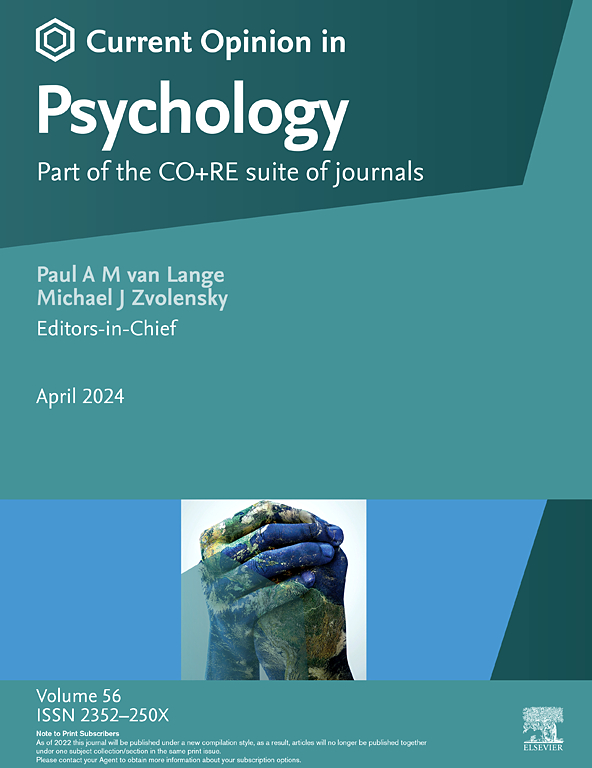责备故意无知的框架
IF 6.9
2区 心理学
Q1 PSYCHOLOGY, MULTIDISCIPLINARY
引用次数: 0
摘要
故意的无知——故意回避知识——对道德责任有着深远的影响。回避个人行为后果的信息挑战了责任和法律罪责的哲学解释,引发了是否应将其视为普通无知的问题。最近,故意无知引起了心理学的关注,特别是关于人们如何在这种情况下归咎于他人。在本文中,我们回顾了人们如何指责故意无知的代理人,并提供了一个理论框架,概述了故意无知影响指责的几种途径。我们提出了三种解释机制,将责任归咎于故意无知——认知、反事实和个人推断——回顾了这些因素的支持证据,并确定了未来研究的途径。本文章由计算机程序翻译,如有差异,请以英文原文为准。
A framework for blaming willful ignorance
Willful ignorance—the deliberate avoidance of knowledge—has profound implications for moral responsibility. Avoiding information about the consequences of one's actions challenges philosophical accounts of responsibility and legal culpability, raising questions about whether it should be treated like ordinary ignorance. Willful ignorance has recently attracted attention from psychology, particularly concerning how people attribute blame in such cases. In this paper, we review how people blame willfully ignorant agents and provide a theoretical framework that outlines several routes along which willful ignorance impacts blame. We propose three explanatory mechanisms for blame attributions to willful ignorance—epistemic, counterfactual, and personal inferences—review supporting evidence for these factors, and identify avenues for future research.
求助全文
通过发布文献求助,成功后即可免费获取论文全文。
去求助
来源期刊

Current Opinion in Psychology
PSYCHOLOGY, MULTIDISCIPLINARY-
CiteScore
12.10
自引率
3.40%
发文量
293
审稿时长
53 days
期刊介绍:
Current Opinion in Psychology is part of the Current Opinion and Research (CO+RE) suite of journals and is a companion to the primary research, open access journal, Current Research in Ecological and Social Psychology. CO+RE journals leverage the Current Opinion legacy of editorial excellence, high-impact, and global reach to ensure they are a widely-read resource that is integral to scientists' workflows.
Current Opinion in Psychology is divided into themed sections, some of which may be reviewed on an annual basis if appropriate. The amount of space devoted to each section is related to its importance. The topics covered will include:
* Biological psychology
* Clinical psychology
* Cognitive psychology
* Community psychology
* Comparative psychology
* Developmental psychology
* Educational psychology
* Environmental psychology
* Evolutionary psychology
* Health psychology
* Neuropsychology
* Personality psychology
* Social psychology
 求助内容:
求助内容: 应助结果提醒方式:
应助结果提醒方式:


